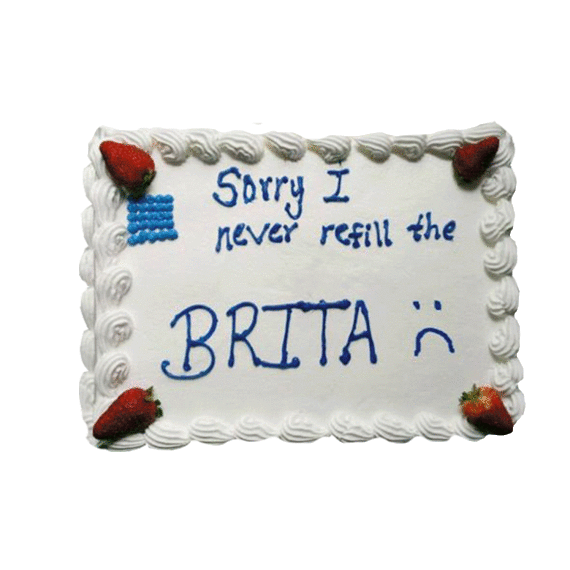THE MUSEUM OF APOLOGY
The Museum of Apology provides a valuable resource to explore the complex issues, resolutions, and discoveries that arise due to the important social practice of apologizing, making amends, contrition, expressing regret, and excusing oneself. After witnessing a series of apologies induced by various situations, our founder became fascinated by the personal and political nature of apology making.
The act of saying sorry is deeply rooted in communities throughout history and around the globe. It is evident in every day conversations and prevalent in pop culture creations.
The Museum of Apology provides a valuable resource to explore the complex issues, resolutions, and discoveries that arise due to the important social practice of apologizing, making amends, contrition, expressing regret, and excusing oneself. After witnessing a series of apologies induced by various situations, our founder became fascinated by the personal and political nature of apology making.
The act of saying sorry is deeply rooted in communities throughout history and around the globe. It is evident in every day conversations and prevalent in pop culture creations.


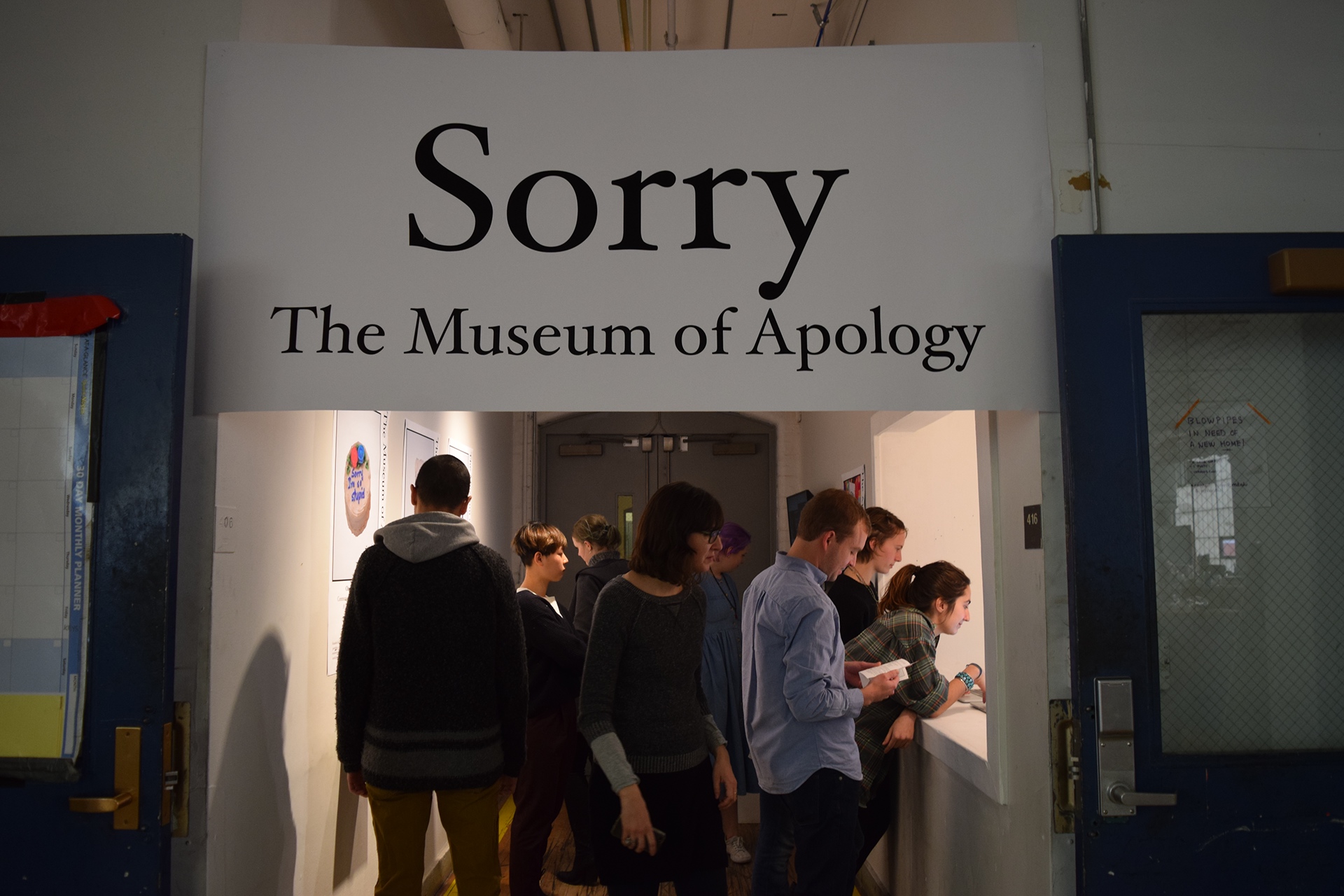


The Museum of Apology maintains a permanent collection of pieces and writings relevant to the process of apologizing. Much of this collection is archived online and can be viewed in our transitional space, apology display, special collections, and mailroom, as well as dispersed throughout the museum.
Our collection also includes a record of many important and thought provoking apology letters, research into non-human animal apology/acknowledgement behavior, sorry cakes, vocal and physical documentation of genuinely delivered apologies, information on the non-apology, and apology artifacts.
![]()

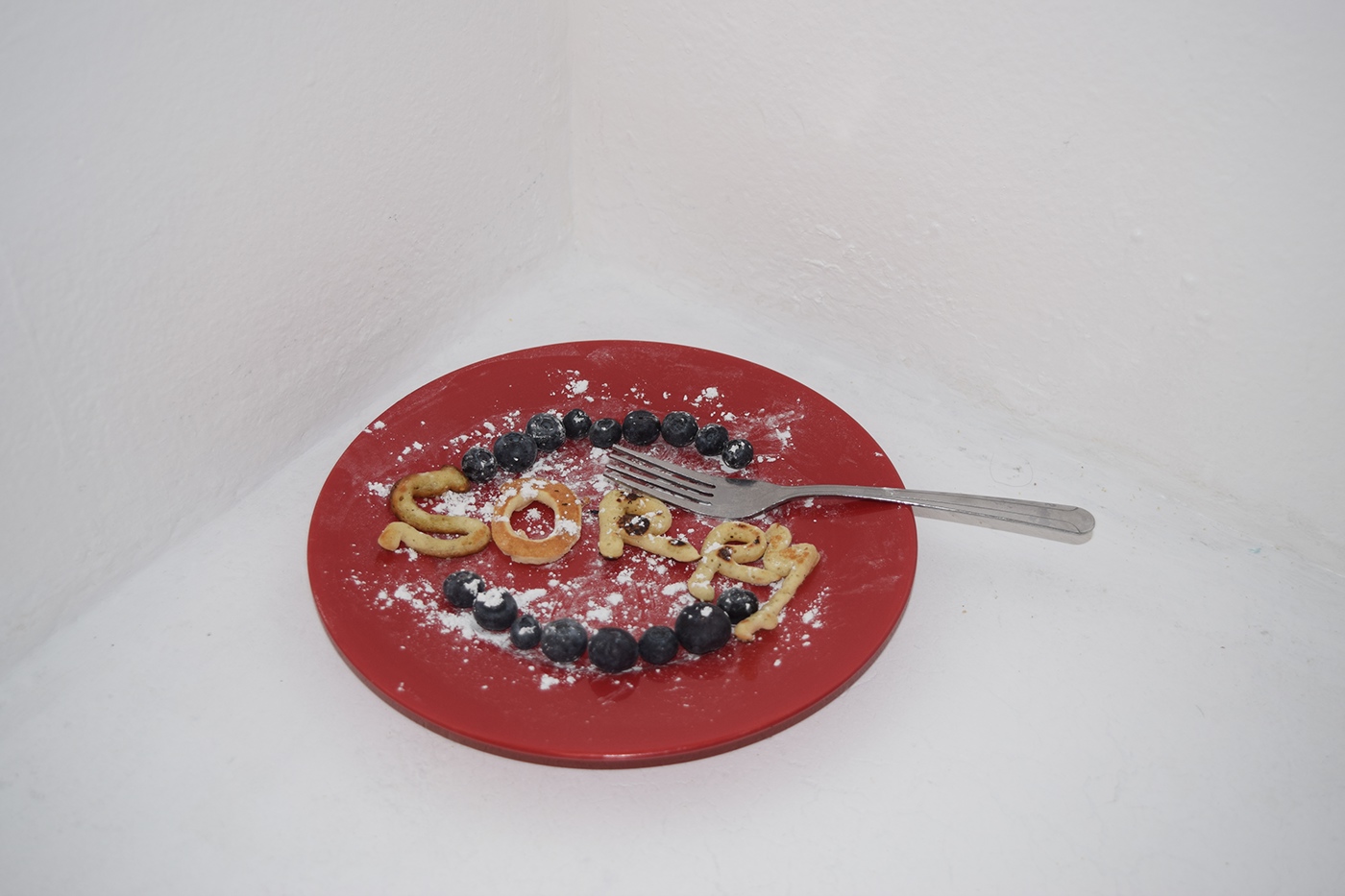
EXTENDED RESEARCH ON THE APOLOGY CAKE
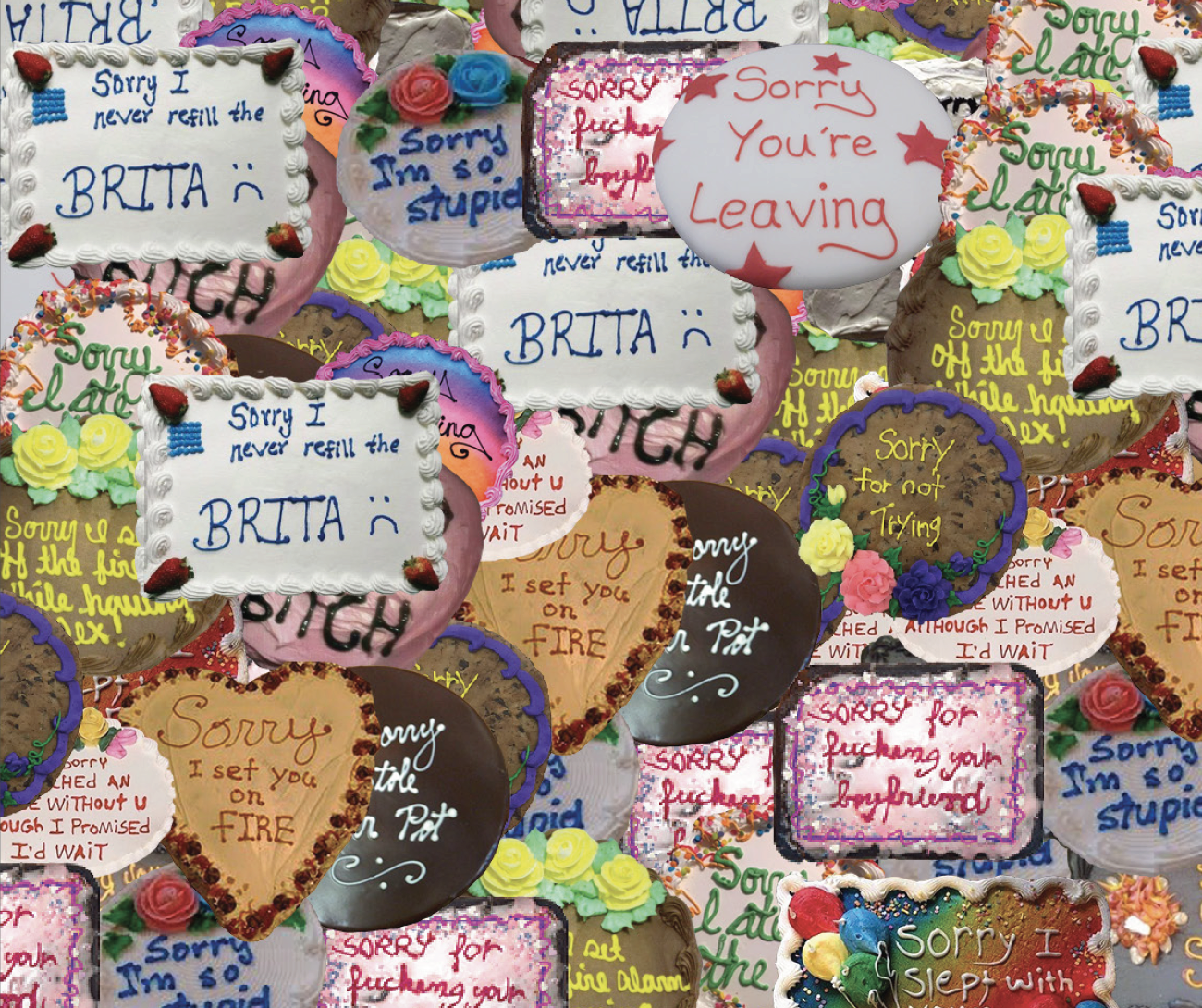
This project originally began as an archive for my apology collection. Over the course of a year, it developed into a set of emojis, an article, and a larger scale research project. You can read the article, published in The Indy, "Communicating Through Taste and Text."
![]()
![]()
![]()
![]()
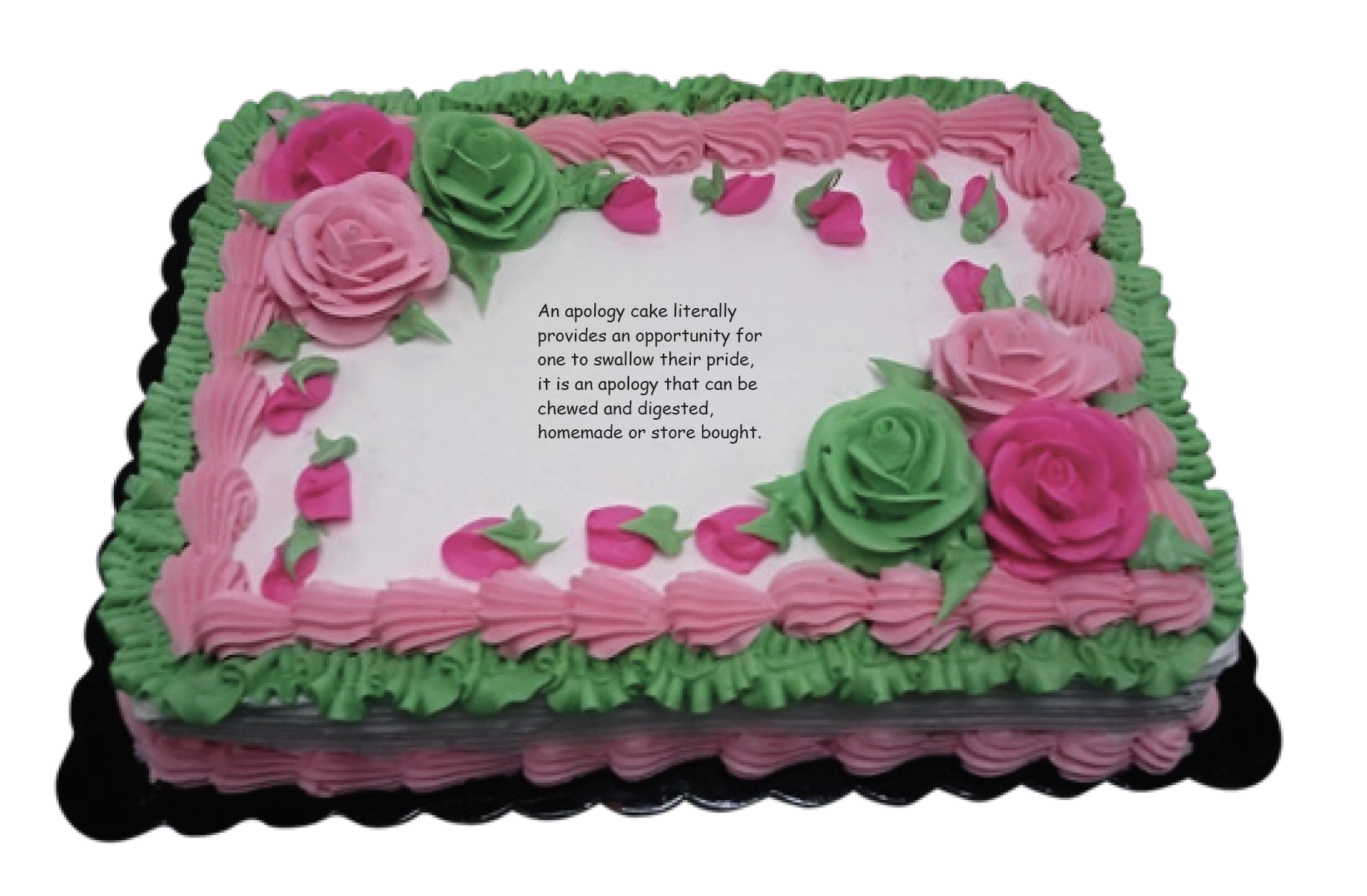
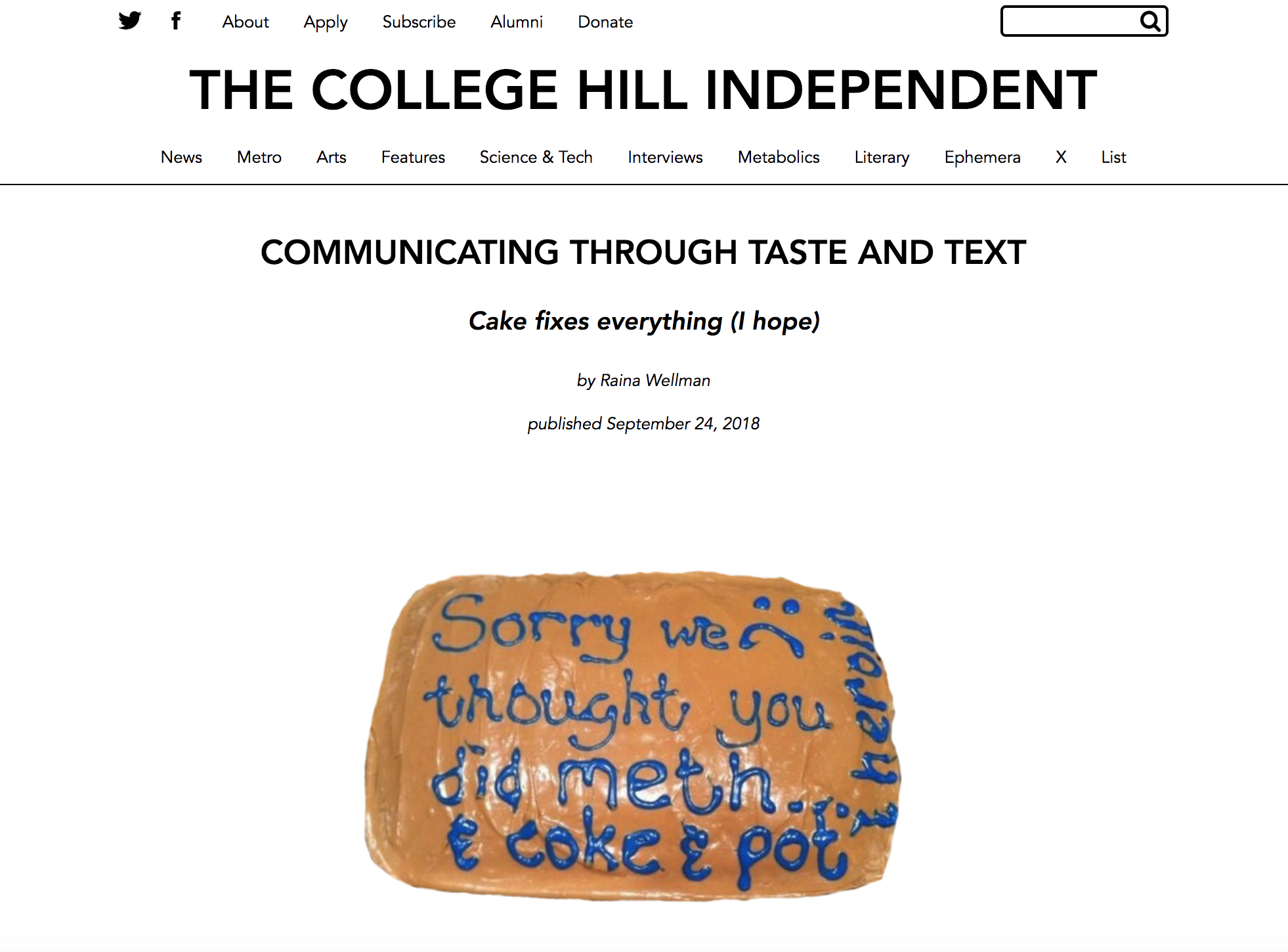
Cakes provide an edible vessel for communication, and though they are traditionally only use as a medium for messages of “Happy Birthday” or the occasional “Congratulations”, cakes have been given new communication opportunities as mediums for often public apologies. What does it mean to publicly apologize to someone? What does it mean to apologize via a baked treat? Most importantly, what does it mean to eat an apology?
Many stumble upon the phenomena innocently, unaware of it’s growing presence and meme culture connections. The first cake I found read simply, “Sorry I’m So Stupid.” Through further research, I discovered that the apology cake is embedded into internet culture, which means that much of the critical conversation about the phenomena occurs through online publications and social media.
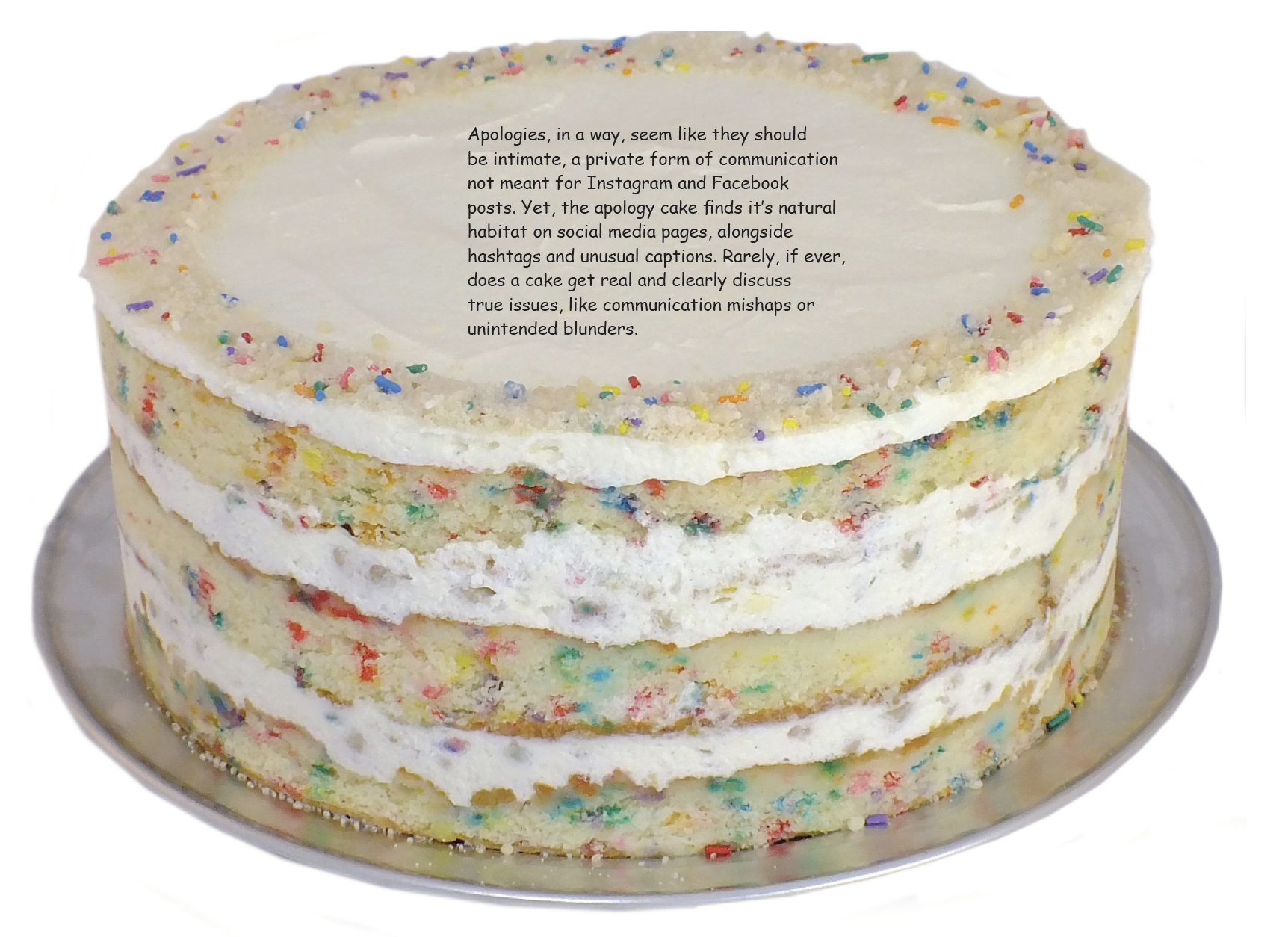



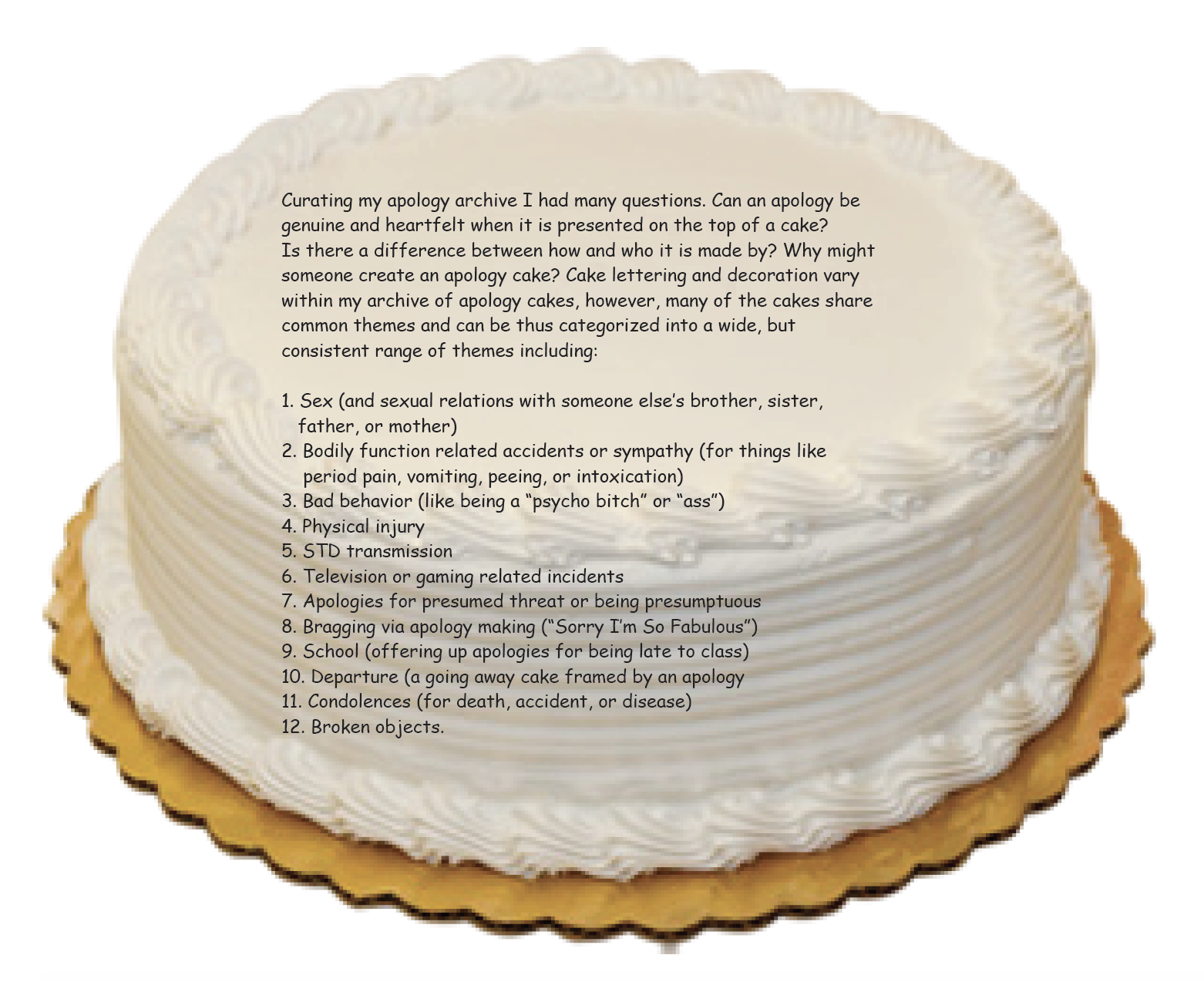
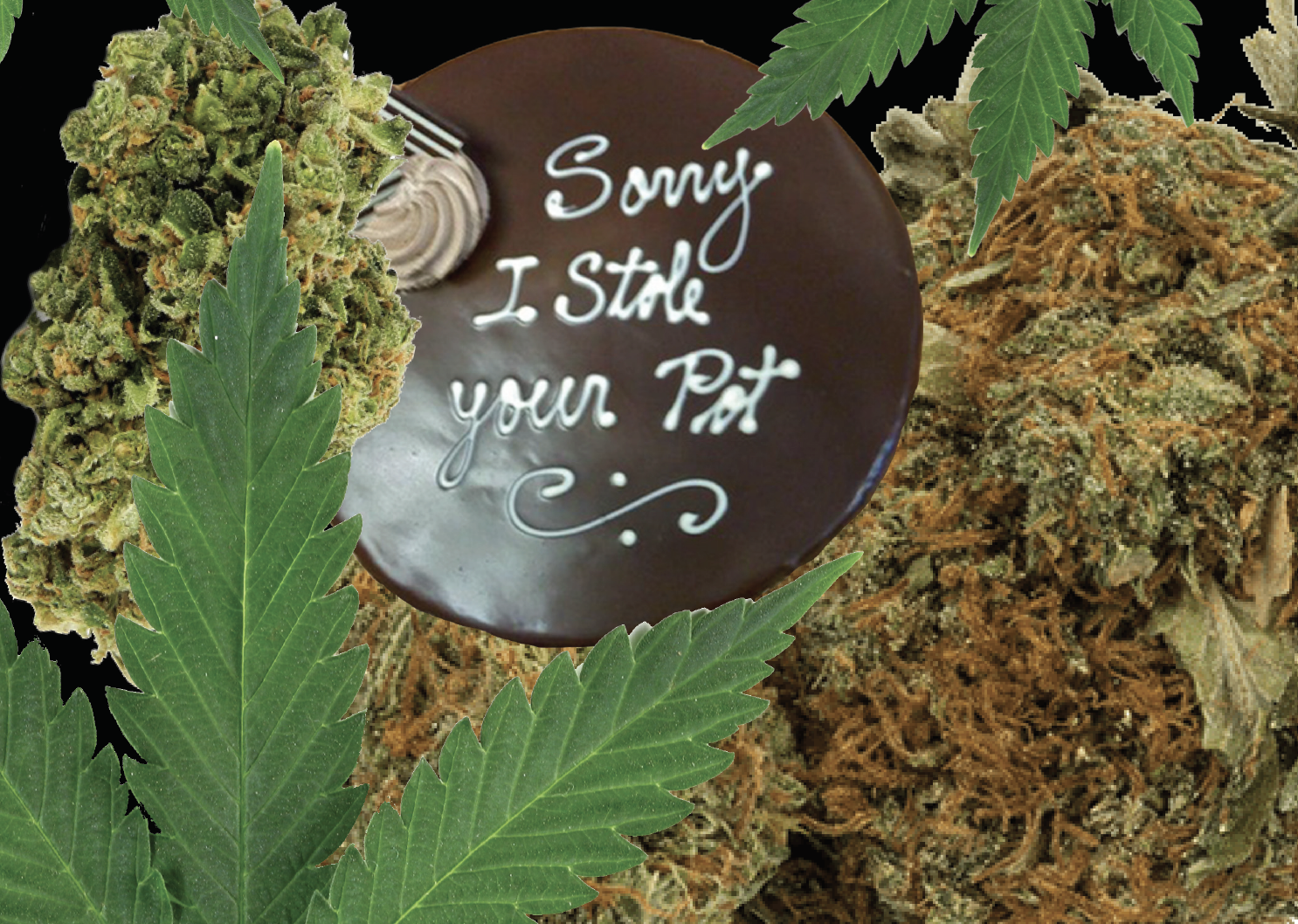
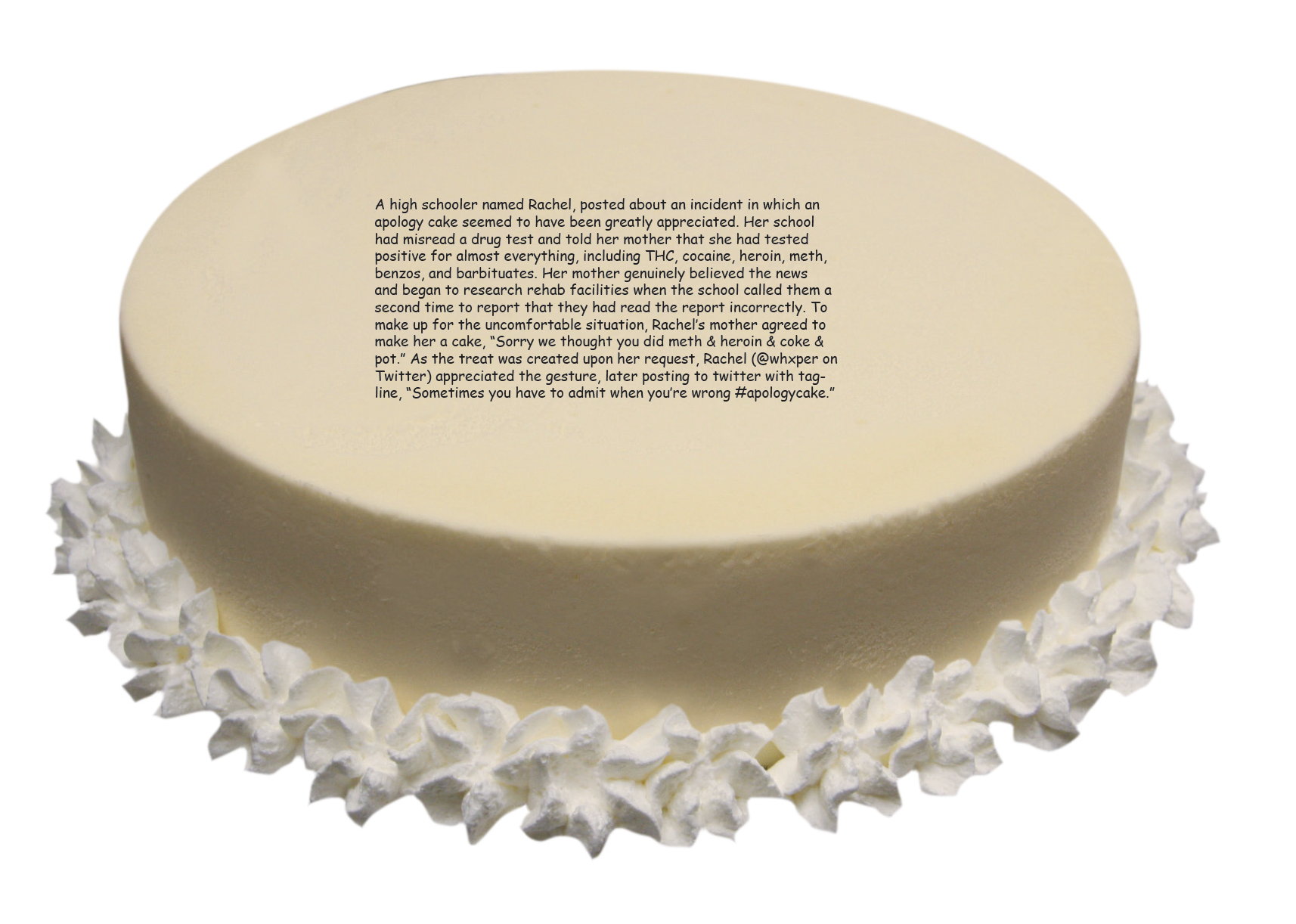
In an unusual extension of the phenomena, some internet users will write humorous apology letters (set in the typeface comic sans) on top of images of cakes. I used this technique to inform viewers about apology cakes.
